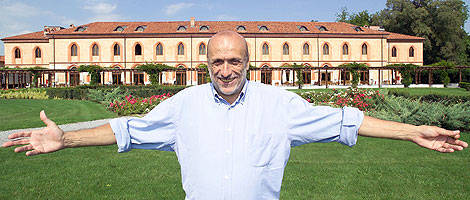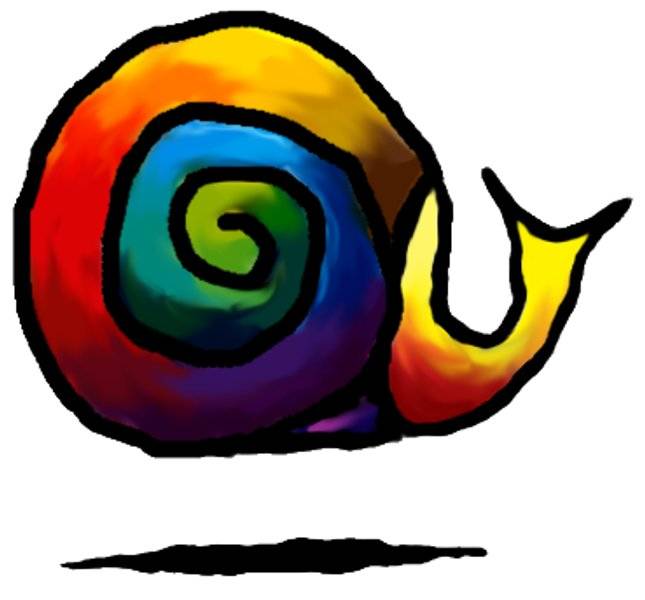Slow Food at the Italian Cultural Institute. Conquering US People
“No matter what country you are in, when you turn the TV on there is some sort of cooking show. Someone surrounded by pots and pans and all types of ingredients, who is following a recipe. That's entertaining but that's not the idea of gastronomy that we promote,” Carlo Petrini, gastronomist, journalist, Italian writer and above all, the founder of the Slow Food cultural movement, told the crowd at the Italian Cultural Institute who had come to hear him speak.
"Slowness" believers, while Petrini spoke about the University of Gastronomic Studies and its mission to create new professionals in the gastronomy system.
What's a gastronome? “The gastronome is a new type of professional who understands the connections between food production and consumption, from agriculture and zoology to processing and distribution to cookery and communications. Gastronomes safeguard society and the environment, and build food-system sustainability while acting as cultural interpreters between food-world communities. As leaders in making change and creating successes in food and wine tourism, product and regional marketing, project management and food innovation, gastronomes add value along the entire length of the food production chain.” And the University is successfully creating these new professionals.
The University of Gastronomic Sciences (UNISG, Università degli Studi di Scienze Gastronomiche), born and promoted in 2004 by the International Slow Food association in collaboration with the Piedmont and Emilia Romagna regional authorities, is a private university legally recognized by the Italian state.
Situated in Pollenzo, near Bra, in the province of Cuneo (Piedmont), it offers three study programs: a three-year undergraduate degree in Gastronomic Sciences, a two-year graduate degree in the Promotion and Management of the gastronomic heritage and tourism, and a one-year Master in Food Culture and Communication comprising three specialization courses-Human Ecology and Sustainability; Food, Place and Identity; Media, Representation and High-Quality Food.
At the end of 2011, 1,009 students had studied at the University of Gastronomic Sciences since its inception with a substantial balance between Italian and foreign (52% against 48%). “But our goal is for it to change and increase the number of international students,” Petrini added.
The students have come from 60 different countries and that has completely changed the face of the town of Bra. “Cultural exchange and interaction between people of different nationalities basically is the first topic we teach at the University,” Petrini explained. People come from countries like India, the United States, Mauritania, Brazil and Japan thus bringing along their experiences on food and society, food and the economy, food and culture and food and politics. “The University's purpose is thus to endow food with academic dignity as a complex, multidisciplinary phenomenon through the study of a renewed food culture.”
The new job title that emerges from its study programs is that of the gastronome, a person equipped with knowledge and skills in the agricultural and food sector, capable of working in the fields of the market economy and communication, driving food production and consumption towards proper, useful choices and helping to create a sustainable future for the planet.
Stefano Noceti is a Food Consultant at Gustiamo, a Bronx based food importer. A 2009 graduate of the University, Stefano sent his resume to several places in Italy and the United States but he got responses only from the US, possibly because Italy is still not open to new figures. “I was a supporter of the Slow Food movement, and after getting my law degree I decided to attend the UNISG and get a Master's in Gastronomic Science and Quality Products. The reason why I picked it was because I wanted to attend a school that offered a real degree and not just cooking classes.”
Stefano's experience was really positive and useful. “Courses were well structured and divided into a technical part, followed by a tasting, and then experience on the field where we would compare the artisanal versus the industrial product.” His studies brought him and his course mates to several Italian regions, and some European countries, such as Spain, France and Norway, where product comparison was a must. During trips students perform important documentation work, recording video interviews with and collecting the testimonies of repositories of rural and gastronomic knowledge in the areas visited. “The course was really successful in creating a new professional figure that was missing and that the business needed. There are producers who have exceptional products but no promotional skills, so here is where the new gastronome is necessary,” Stefano added. The gastronome is that missing link.
Enthralled by his enthusiasm and knowledge, the audience at the Institute could have listened to Petrini for hours, yet the statement that raised the loudest applause was “All these chefs we see on TV are not important, the biggest stars in gastronomy are women who, with their ever lasting hard work, have fed the world without throwing anything away, creating excellent dishes, such as Tuscan ribollita and ravioli, with leftovers.” This is just one expression of the wide philosophy of Slow Food.
“Slow Food is a global grassroots organization that envisions a world in which all people can access and enjoy food that is good for them, good for those who grow it and good for the planet. A non-profit member-supported association, Slow Food was founded in 1989 to counter the rise of fast food and fast life, the disappearance of local food traditions and to encourage people to be aware about the food they eat, where it comes from, how it tastes and how our food choices affect the rest of the world. Slow Food believes that everyone has a fundamental right to the pleasure of good food and consequently the responsibility to protect the heritage of food, tradition and culture that make this pleasure possible.”
“If tomatoes are picked by immigrants who are treated badly, they are not good,” Petrini explained, the food we eat should taste good and be healthy, it should be produced in a clean way that does not harm the environment, animal welfare, the workers and food producers should receive fair compensation for their work.
As of today, Slow Food, which was founded in 1989,has over 100,000 members joined in 1,300 local chapters worldwide, as well as a network of 2,000 food communities who practice small-scale and sustainable production of quality foods. In the USA there are more than 200 chapters across the country. “We preach about slowness,' Petrini said, “but we are moving fast and conquering people by their stomach is our real power.”








































i-Italy
Facebook
Google+
This work may not be reproduced, in whole or in part, without prior written permission.
Questo lavoro non può essere riprodotto, in tutto o in parte, senza permesso scritto.